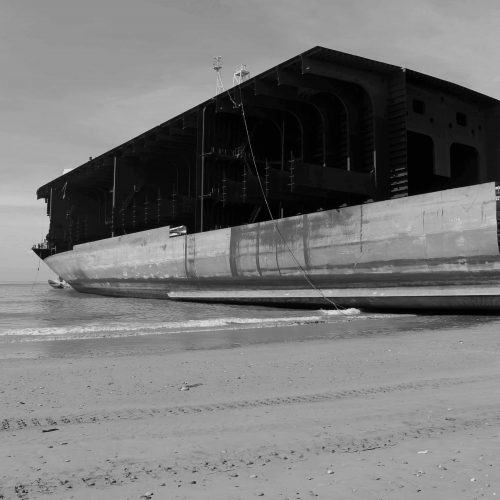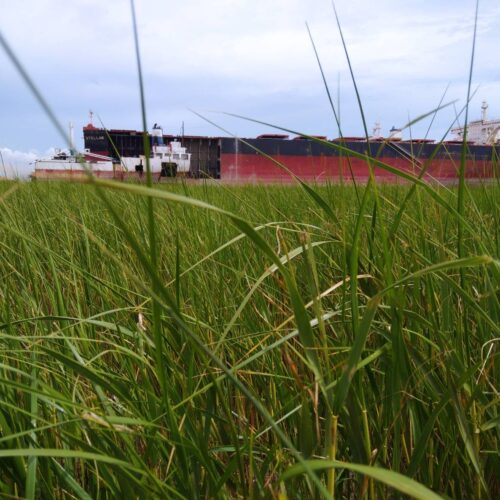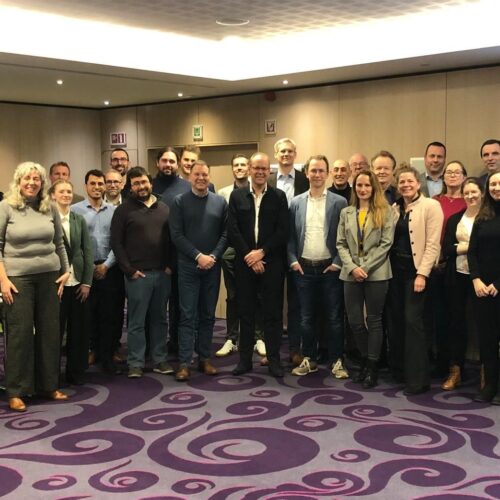Platform News – Norway’s largest Pension Fund highlights human rights and environmental risks related to shipbreaking in South Asia
KLP, Norway’s largest pension fund [1], commissioned the International Law and Policy Institute (ILPI) [2] to write a report on the human rights and environmental risks related to the current practice of dismantling end-of-life ships on intertidal beaches. The report entitled Shipbreaking practices in Bangladesh, India and Pakistan. An investor perspective on the human rights and environmental impacts of beaching was released last week and examines the shipbreaking practices in Bangladesh, India and Pakistan in light of internationally recognised frameworks for responsible business conduct, as well as the practice of the Council on Ethics for the Norwegian Governmental Pension Fund.
The report argues that the responsibility of companies operating in the global market place does not stop at its own doorstep, but extends to adverse human rights impacts in the entire value chain. KLP joins a number of other investors and clients of shipping [3] that increasingly raise concerns over the current conditions of the shipbreaking industry in South Asia.

International standards by which corporate responsibility can be measured include the OECD Guidelines for Multinational Enterprises and the UN Guiding Principles for Business and Human Rights (UNGP). Companies are required to carry out a risk-based due diligence with respect to the human rights as well as environmental impact of their business activities, including their value chain.
In the report’s foreword, CEO of KLP, Håvard Gulbrandsen, states: “We hope that the report can help raise awareness of the severe human and environmental risks beaching can entail for shipping industry companies, their customers, and also for other investors. […] KLP hopes to encourage investors to work together to engage with companies on improving labour and environmental conditions. The shipping industry is and will be an important part of Norwegian investors' portfolios for the foreseeable future. KLP's goal is to work towards a future where responsible shipbreaking is the industry standard.”
NOTES
[1] KLP is Norway's largest life insurance company. Kommunal Landspensjonskasse (KLP) delivers financial and insurance services to the public sector, enterprises associated with the public sector and their employees.
[2] International Law and Policy Institute (ILPI) is an independent institute focusing on good governance, peace and conflict, and international law. Their approach to solving global challenges is based on the integration of law and social sciences and on bridging the gap between academia and politics. They provide research, analysis, policy advice, process support and training to clients ranging from private companies and institutions to governments and international organisations.
[3] Major companies such as H&M, Tetra Laval, ABB, Philips, Volvo and Volkswagen do not want to be associated with substandard shipbreaking practices in South Asia and have asked their forwarders – the shipping companies they use to transport their goods – to adopt sustainable ship recycling policies. For more information click here.
Related news

Platform publishes South Asia Quarterly Update #12
128 ships were sold for scrap to the South Asian beaches in the first quarter of 2017 [1]. Eleven workers were killed and at least four additional… Read More

Press Release – NGOs call upon authorities to sanction illegal exports of cruises
At least three passenger ships have been illegally sold for scrapping on the beaches of South Asia in the last months.
... Read More
Platform publishes South Asia Quarterly Update #33
Six workers suffered an accident on South Asian beaches in the first quarter of 2023.
... Read More
Press Release – Container shipping asked to clean up its act in view of upcoming scrapping wave
Numerous container ships are predicted to be sold for scrapping in the near future.
... Read More
Platform News – CirclesOfLife leads the charge toward sustainable shipyard practices
Comprising members from shipyards, industry associations, civil society organizations, academia, and classification societies, CirclesOfLife is a consortium committed to driving progress toward circular, zero-impact shipping through collaborative efforts.
... Read More
Platform News– Legal action taken by family of deceased worker following fatal incident at IŞIKSAN ship recycling yard in Turkiye
On 31 August last year, a fatal accident occurred during the dismantling of the Norwegian floating oil platform BIDEFORD DOLPHIN at the IŞIKSAN ship recycling yard in… Read More

Platform publishes South Asia Quarterly Update #29
Thirteen workers suffered an accident on South Asian beaches in the first quarter of 2022.
... Read More
Press Release – NGOs denounce dangerous working conditions after major explosion at Gadani shipbreaking yard in Pakistan killing at least 21 workers
A major blast caused by several gas cylinder explosions onboard an oil production and storage tanker, beached at Gadani shipbreaking plot number 56, killed at least 21… Read More
